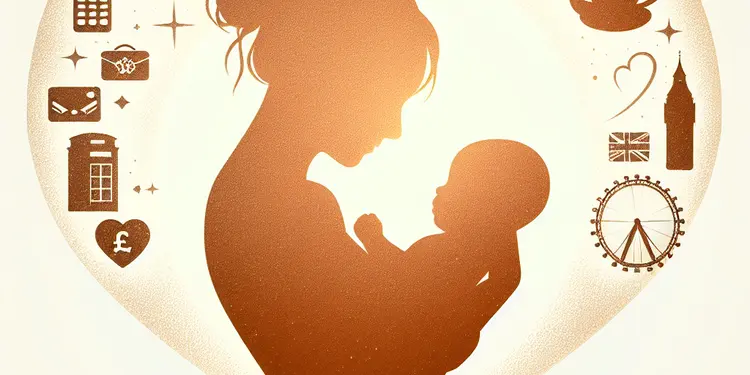
Find Help
More Items From Ergsy search
-
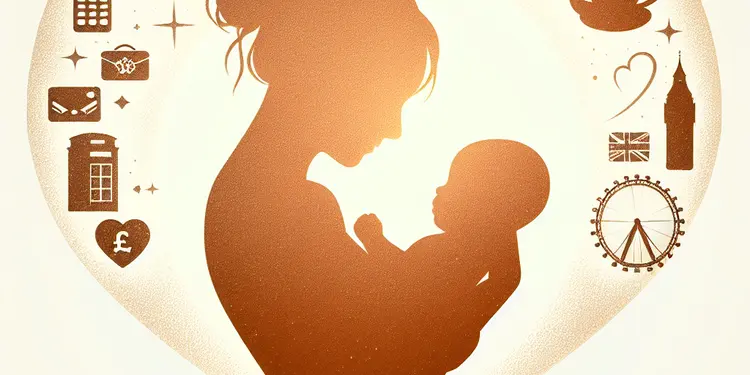
How does postnatal depression affect bonding with the baby?
Relevance: 100%
-
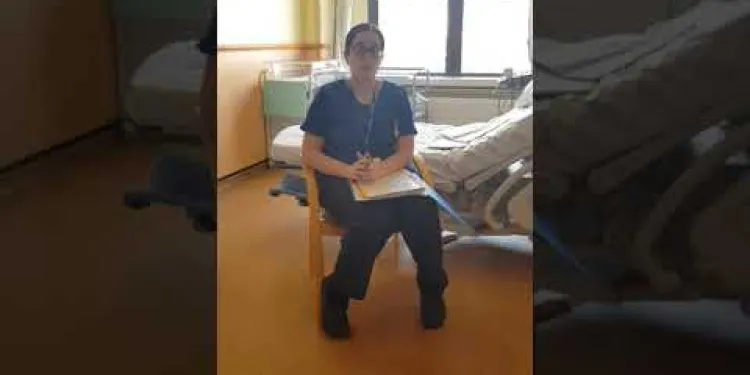
Postnatal Depression
Relevance: 75%
-
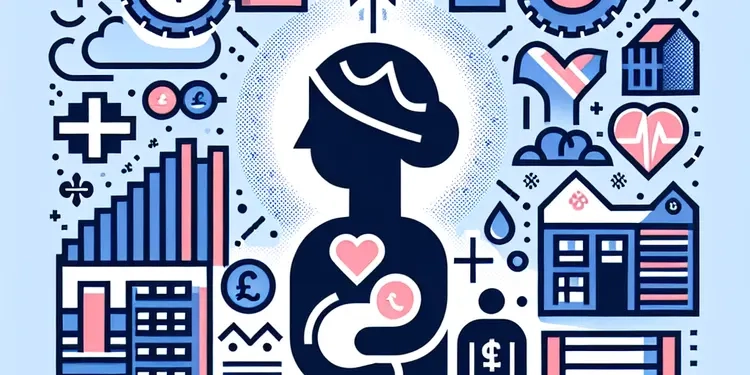
What is postnatal depression?
Relevance: 75%
-
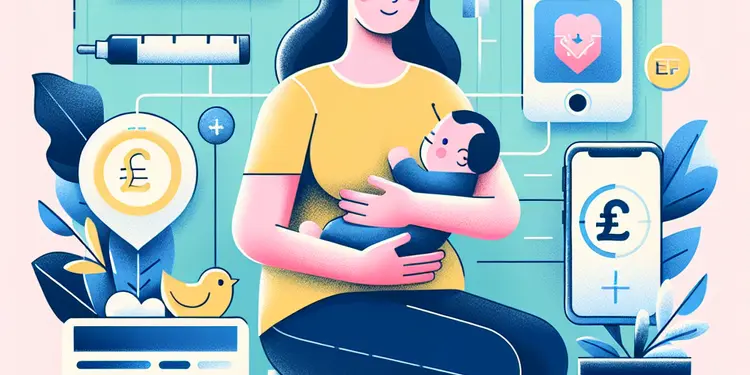
How is postnatal depression different from the 'baby blues'?
Relevance: 72%
-
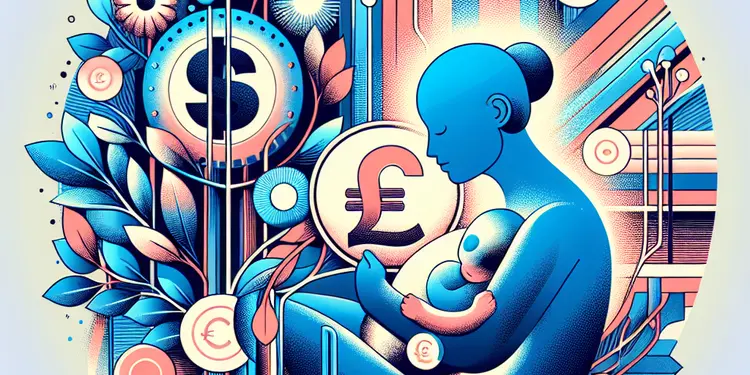
What are the symptoms of postnatal depression?
Relevance: 70%
-

Postnatal Depression - Leanne's Story
Relevance: 69%
-
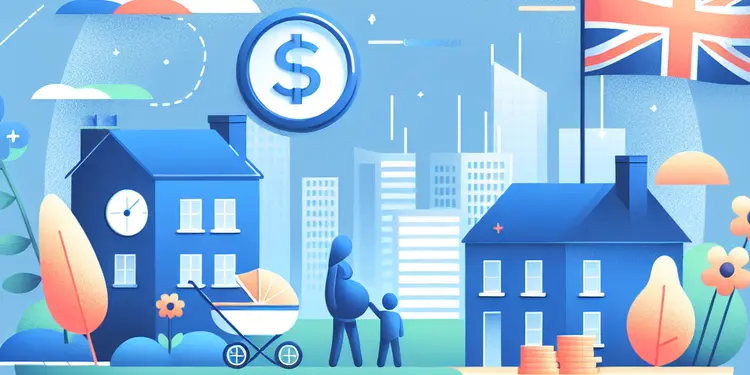
Is postnatal depression a long-term condition?
Relevance: 67%
-
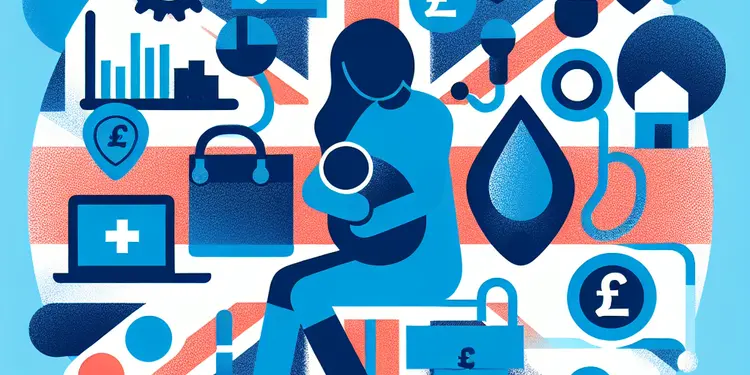
How is postnatal depression diagnosed?
Relevance: 67%
-
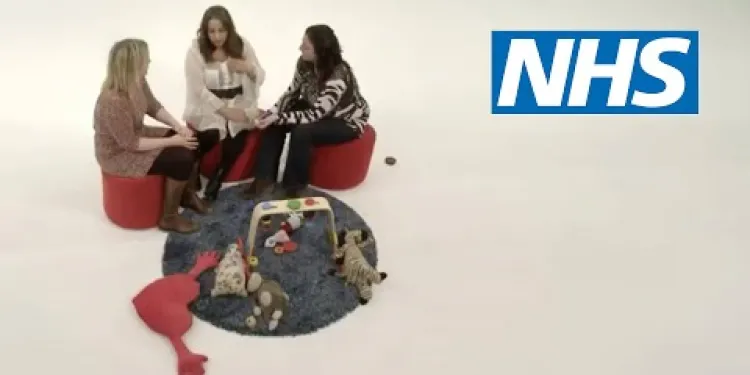
How do I know if I have postnatal depression? | NHS
Relevance: 66%
-
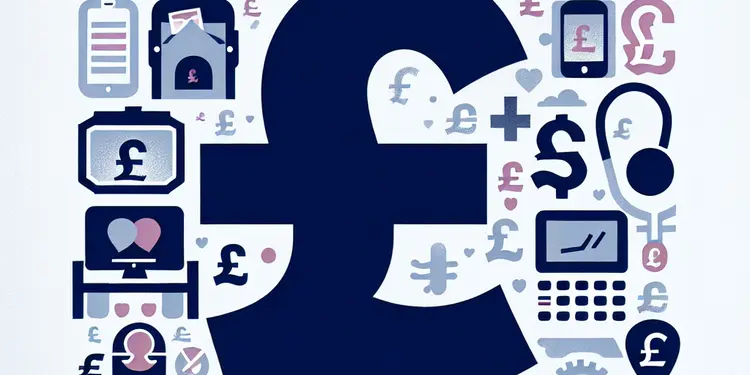
What should I do if I suspect I have postnatal depression?
Relevance: 65%
-
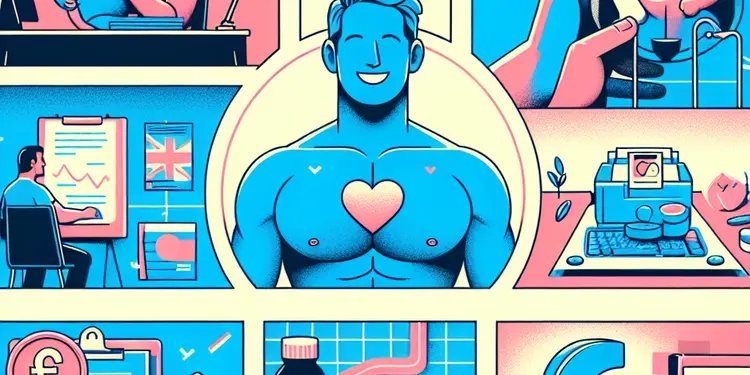
Is medication necessary for treating postnatal depression?
Relevance: 62%
-

Can fathers experience postnatal depression?
Relevance: 62%
-
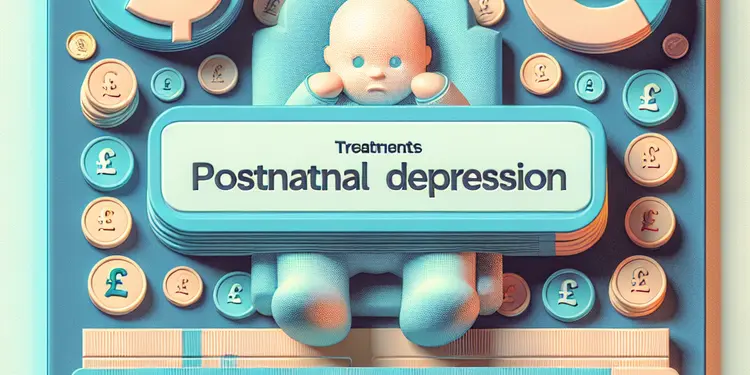
Are there treatments available for postnatal depression?
Relevance: 61%
-

Should someone with postnatal depression seek professional help?
Relevance: 60%
-
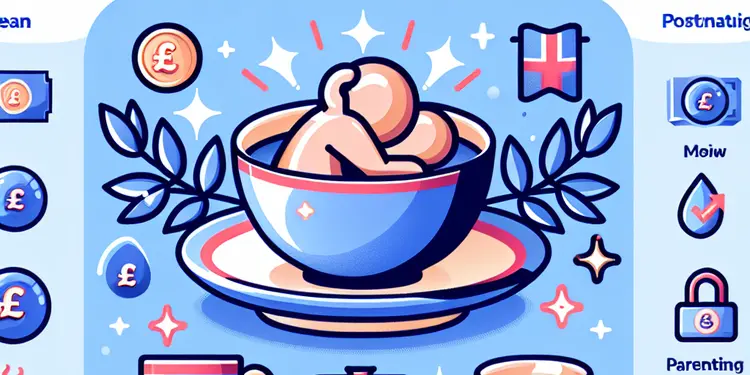
Are there support groups for postnatal depression?
Relevance: 59%
-
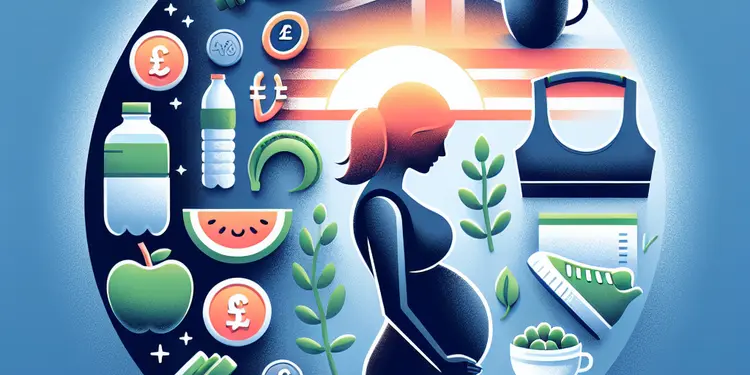
Can lifestyle changes help with postnatal depression?
Relevance: 56%
-
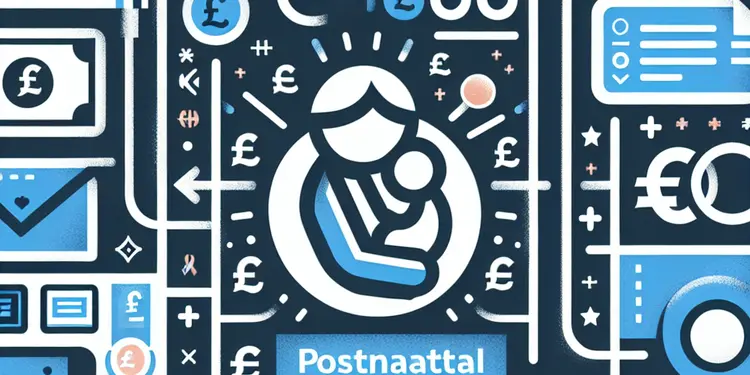
Is postnatal depression preventable?
Relevance: 56%
-

Can postnatal depression affect subsequent pregnancies?
Relevance: 55%
-

What causes postnatal depression?
Relevance: 55%
-
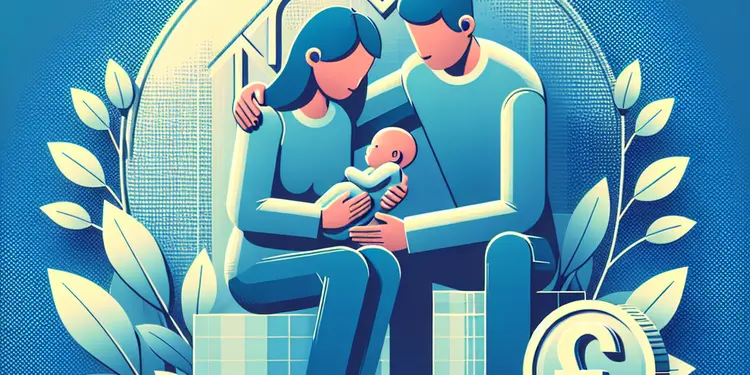
How can family members support someone with postnatal depression?
Relevance: 53%
-
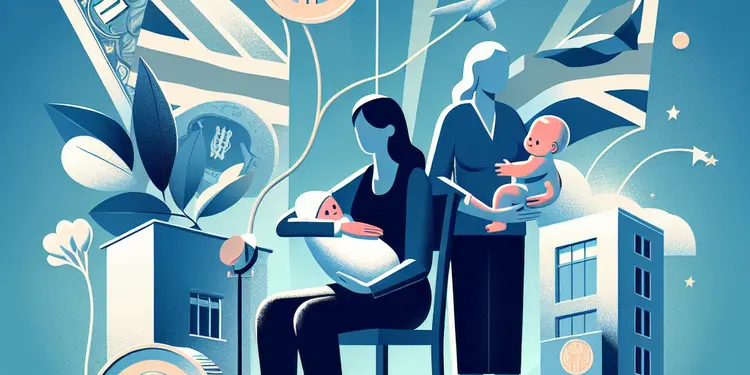
Can postnatal depression recur after treatment?
Relevance: 53%
-
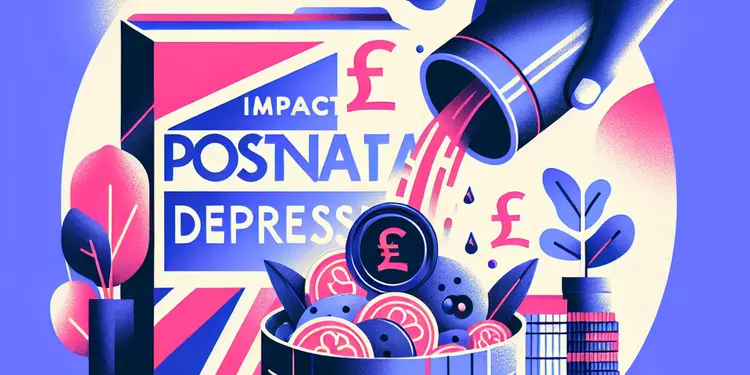
Can diet impact postnatal depression?
Relevance: 51%
-

Postpartum Health: Mother and Baby
Relevance: 46%
-
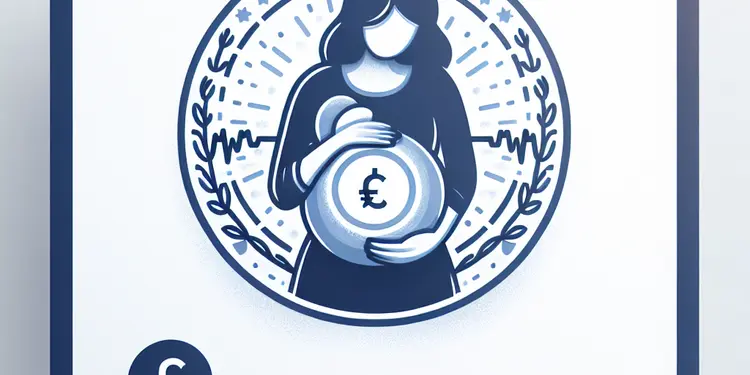
How soon after childbirth can postnatal depression occur?
Relevance: 42%
-
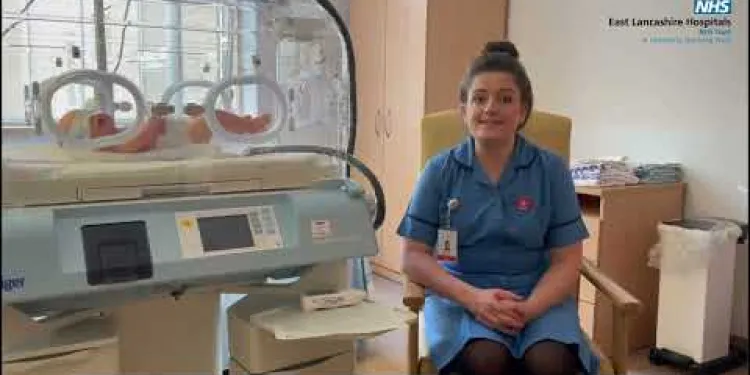
Jaundice in babies
Relevance: 27%
-
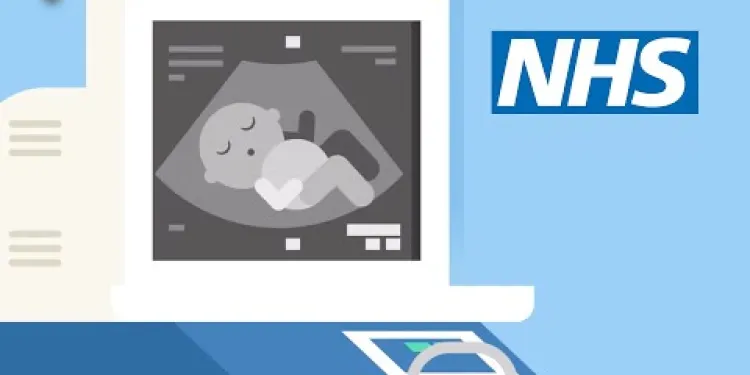
Screening tests for you and your baby | NHS
Relevance: 27%
-
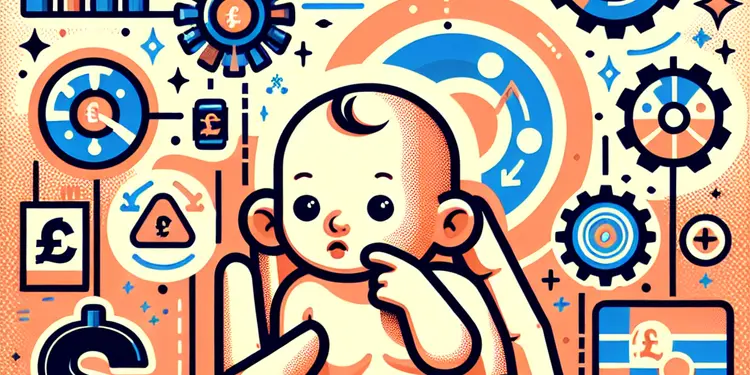
What are the symptoms of jaundice in a baby?
Relevance: 24%
-
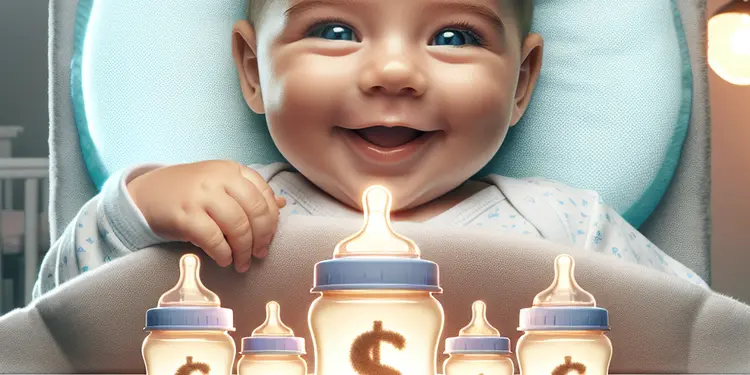
Do formula-fed babies get jaundice?
Relevance: 24%
-
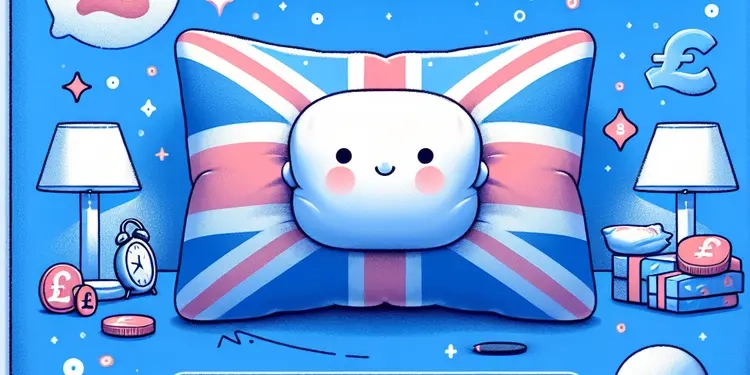
Are baby sleep pillows safe?
Relevance: 24%
-
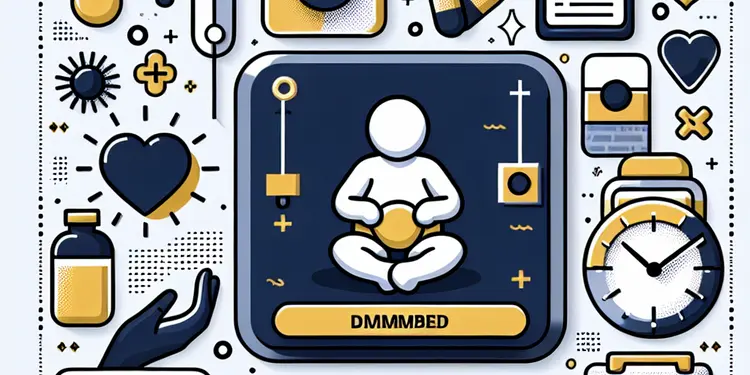
Can jaundice reoccur in babies?
Relevance: 24%
-

Why do babies get jaundice?
Relevance: 24%
-
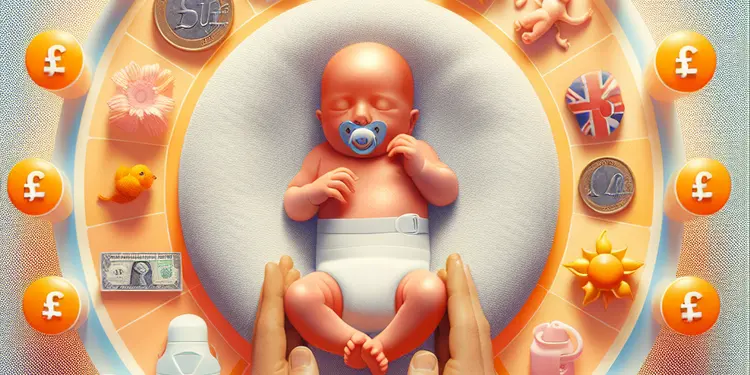
Is it safe to sunbathe a baby with jaundice?
Relevance: 24%
-

How do I know if my baby food is safe?
Relevance: 23%
-
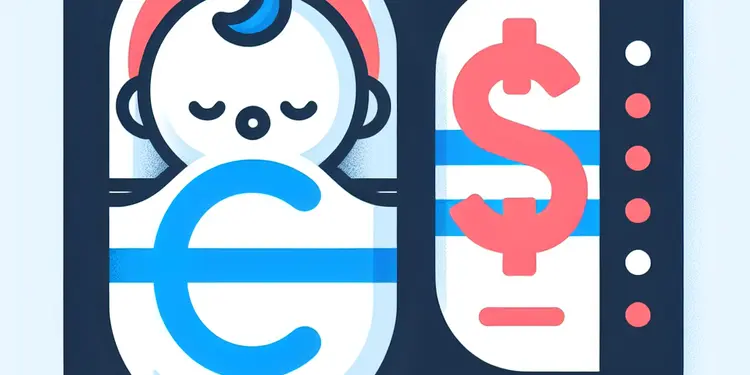
Is it okay to use a baby sleep positioner?
Relevance: 23%
-

Treating anxiety and depression - www.slam.nhs.uk
Relevance: 23%
-
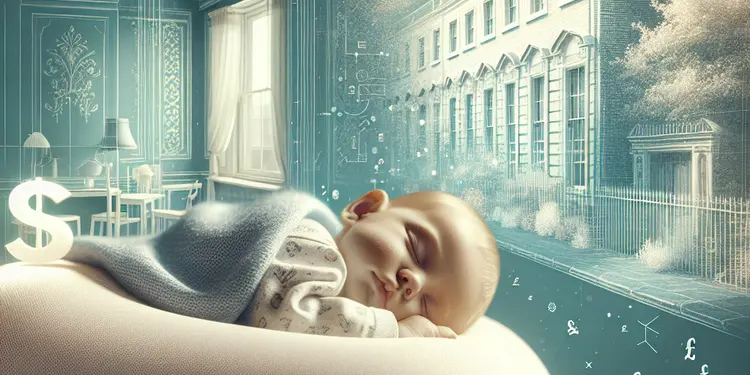
Are there any benefits to using baby sleep pillows?
Relevance: 23%
-
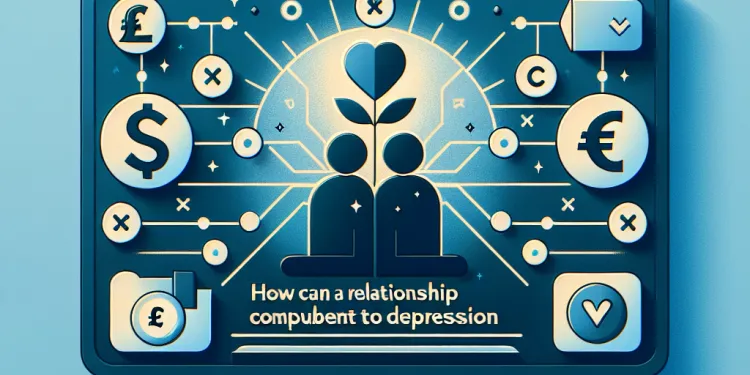
How can a relationship contribute to depression?
Relevance: 23%
-

What are the risks associated with baby sleep pillows?
Relevance: 23%
-
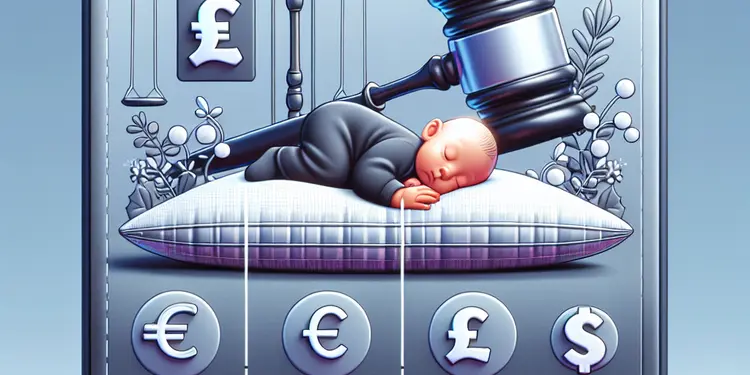
Are there any regulations on the sale of baby sleep pillows?
Relevance: 23%
-
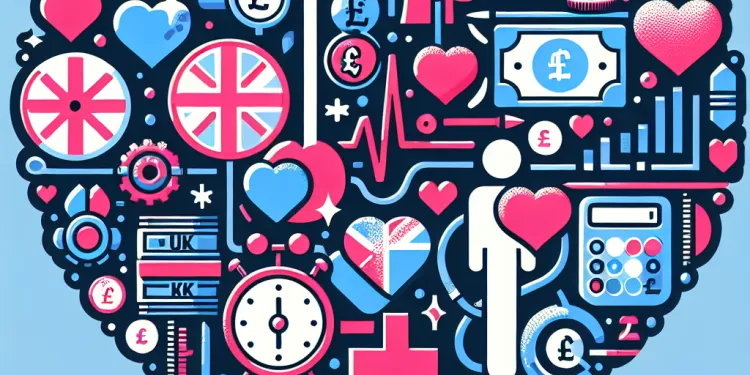
What are the signs that my relationship is making me depressed?
Relevance: 22%
Understanding Postnatal Depression
Postnatal depression (PND), also known as postpartum depression, is a type of depression that many parents experience after having a baby. It is a widespread issue that can affect mothers and, in some cases, fathers as well. In the UK, it's estimated that postnatal depression affects more than 1 in every 10 women within a year of giving birth. Understanding its impact on both the parent and child is crucial for developing effective support systems.
The Impact of Postnatal Depression on Bonding
The bond between parent and child, often referred to as attachment, is vital for the child's emotional and psychological development. This bond usually begins to form during pregnancy and continues to strengthen after the baby is born. However, postnatal depression can significantly affect this process, making it challenging for the parent to connect with their baby.
One of the primary ways PND affects bonding is through the emotional and physical symptoms the parent experiences. Parents with PND often feel overwhelming sadness, fatigue, and disinterest in activities they once enjoyed. These feelings can make it difficult to engage positively with their baby, leading to difficulties in forming a strong emotional connection.
Poor bonding during the early months can lead to attachment issues, which may affect a child's development. Babies who do not form secure attachments may experience emotional and behavioural difficulties as they grow older. For instance, they may have trouble regulating emotions or interacting socially with peers.
Challenges Parents Face with Bonding
Parents experiencing PND may struggle with feelings of guilt and inadequacy, believing they are failing in their role. These feelings can further inhibit their ability to bond with their baby as they may avoid interactions that could reinforce these negative perceptions.
The exhaustion and sleep deprivation that often accompany caring for a newborn can exacerbate symptoms of depression, making the task of bonding even more daunting. A lack of interest or pleasure can reduce the parent’s ability to engage in play or respond empathetically to their baby's cues, both essential components of healthy bonding.
Support and Remedies
Early intervention can substantially improve outcomes for both the parent and child. Healthcare providers in the UK, such as health visitors and GPs, are trained to screen for signs of postnatal depression and can guide parents to appropriate resources and treatments. Psychological therapies, such as cognitive behavioural therapy (CBT), and support groups can provide much-needed support and coping strategies.
Medication may also be considered in some cases, alongside therapy to help manage symptoms. Sharing responsibilities with a partner, family, or friends can also alleviate some of the pressures and allow the parent time to rest and recuperate—helping rebuild the energy necessary to engage with their baby.
In summary, while postnatal depression poses challenges to bonding between parent and child, understanding and addressing these issues early can foster healthier relationships and enhance both the parent's well-being and the child's developmental prospects.
Understanding Postnatal Depression
Postnatal depression (PND) happens after having a baby. Both mums and dads can feel this way. In the UK, more than 1 out of every 10 mums feels this way in the year after having a baby. It's important to know how it affects both parents and babies. This helps us support them better.
The Impact of Postnatal Depression on Bonding
Bonding is the special connection between parent and baby. This is important for how the baby grows and feels. This bond starts before the baby is born and gets stronger after birth. But PND can make it hard for parents to bond with their baby.
When parents have PND, they might feel very sad and tired. They might not want to do things they used to enjoy. This makes it hard to be happy and connected with their baby. If bonding is weak, the baby might have trouble growing and learning how to handle feelings and play with others.
Challenges Parents Face with Bonding
Parents with PND might feel guilty or like they are not good parents. This can make it even harder to bond with their baby. They might avoid spending time with the baby because it makes them feel worse.
Parents of newborns also feel very tired because of lack of sleep, making depression worse. This can make it hard to play or respond to the baby's needs, which are important for bonding.
Support and Remedies
Getting help early is very important for both the parent and the baby. Nurses and doctors in the UK know how to see if someone has PND. They can help parents find the right resources and treatments. Talking therapies and support groups can provide help and ways to cope.
Sometimes, medicine can help along with therapy. Sharing responsibilities with a partner, family, or friends can help too. This can give the parent time to rest and feel better, making it easier to bond with their baby.
In summary, PND can make bonding hard between parent and baby. But by understanding and dealing with it early, relationships can grow stronger, and both the parent and baby can feel better and healthier.
Frequently Asked Questions
What is postnatal depression?
Postnatal depression is a type of depression that occurs after childbirth, affecting a parent's emotion, thoughts, and wellbeing.
How common is postnatal depression?
Postnatal depression affects approximately 10-15% of new mothers but can also affect new fathers.
How does postnatal depression impact bonding with the baby?
Postnatal depression can affect a parent's ability to respond to their baby's needs, impacting the formation of a secure attachment.
What are the symptoms of postnatal depression?
Symptoms include persistent sadness, lack of energy, difficulty bonding with the baby, withdrawal from family and friends, and anxiety.
Can postnatal depression affect breastfeeding?
Yes, it can lead to difficulties with breastfeeding, including lower milk production or a decision to stop breastfeeding sooner.
How does postnatal depression differ from 'baby blues'?
'Baby blues' are mild mood swings occurring shortly after childbirth, while postnatal depression is more severe and lasts longer.
Can men experience postnatal depression?
Yes, fathers can also experience postnatal depression, which can affect their ability to bond with the baby.
What can help improve bonding if a parent has postnatal depression?
Therapy, medication, peer support, and parenting classes can help parents improve bonding with their baby.
Can untreated postnatal depression affect the child long-term?
Untreated postnatal depression can impact a child's emotional and cognitive development, leading to behavioral issues.
Are there risk factors that increase the likelihood of postnatal depression?
Risk factors include a history of depression, lack of support, stressful life events, and complications during childbirth.
How is postnatal depression diagnosed?
Healthcare providers can diagnose postnatal depression through assessments, screenings, and discussions about symptoms.
What treatments are available for postnatal depression?
Treatments include psychotherapy, medication, lifestyle changes, and support groups.
Can postnatal depression resolve on its own?
While some cases may improve over time, treatment is often necessary to ensure a healthy recovery.
How soon after birth can postnatal depression begin?
It typically begins within the first year after childbirth but can start as soon as a few weeks postpartum.
Can a good support system help prevent postnatal depression?
A strong support system can help reduce the risk by providing emotional and practical support to new parents.
Is it possible to prevent postnatal depression?
While it may not be entirely preventable, risk can be reduced with prenatal care, stress management, and early intervention.
How should family members support someone with postnatal depression?
Family members should offer emotional support, encourage seeking treatment, and help with childcare and household tasks.
How does postnatal depression affect the partner relationship?
It can strain the relationship, as partners may struggle to understand the condition and the additional stress it brings.
Is it necessary for both parents to bond with the baby?
Yes, bonding with both parents can contribute positively to the baby's emotional and social development.
How can early intervention help with postnatal depression?
Early intervention can lead to better outcomes by addressing symptoms more quickly and preventing worsening of the condition.
What is postnatal depression?
Postnatal depression is a kind of sadness that some parents feel after having a baby. It can make you feel very upset, tired, or worried. This can happen to moms and dads.
If you feel this way, it is important to tell someone who can help, like a doctor.
Some things that can help are talking to friends and family, getting rest, and doing things that make you happy.
Postnatal depression is a kind of sadness that some parents feel after having a baby. It can make parents feel upset and can change how they think and feel.
How often do new mums feel very sad after having a baby?
After having a baby, some moms and dads can feel very sad. This happens to about 10-15 out of every 100 new moms. Dads can feel like this too.
How does feeling sad after having a baby affect getting close to the baby?
Sometimes, parents feel very sad after their baby is born. This is called postnatal depression.
When parents feel sad, it can be hard for them to feel close to their baby. They might not want to play or cuddle with the baby as much.
It's important to talk to a doctor or a friend if you feel like this. They can help you feel better.
Some things that might help are talking about your feelings, resting when you can, and asking for help from family and friends.
Remember, many parents feel this way, and there are ways to feel better.
After a baby is born, some parents feel very sad. This is called postnatal depression. It can make it hard for parents to take care of their baby. This can also make it hard for the baby and parent to feel close and safe with each other.
What signs show postnatal depression?
Here is a list of signs:
- Feeling very sad or unhappy.
- Feeling tired all the time.
- Not wanting to eat much, or eating too much.
- Trouble sleeping, even when the baby sleeps.
- Not feeling interested in things you used to like.
- Feeling worried a lot.
- Finding it hard to focus or make decisions.
- Feeling like you are not a good parent.
- Thinking bad thoughts.
If you notice these signs, you can:
- Talk to a doctor or nurse.
- Chat with a friend or family member.
- Try to rest when the baby sleeps.
- Eat healthy food.
- Join a support group for new parents.
Remember, it is okay to ask for help.
Signs you might see are feeling very sad for a long time, always feeling tired, having a hard time loving your baby, staying away from family and friends, and feeling worried a lot.
Can feeling sad after having a baby make breastfeeding harder?
Some new moms feel very sad after their baby is born. This is called postnatal depression.
Feeling this way can make breastfeeding more difficult.
Here are some things that can help:
- Talk to a doctor or nurse. They can help you feel better.
- Join a group of other new moms. You can share how you feel with them.
- Ask family or friends for help with the baby.
Yes, it can make breastfeeding harder. It might cause less milk or stopping breastfeeding earlier.
How is postnatal depression different from 'baby blues'?
After having a baby, some mums feel sad.
'Baby blues' is when mums feel sad for a few days after the baby is born. This is normal and usually goes away on its own.
Postnatal depression is feeling very sad for a longer time after having a baby. This might last weeks or months and might need help from a doctor.
If you feel very sad after having a baby, talk to someone you trust or see a doctor for help.
Reading out loud, using pictures or videos, and asking someone to explain can help you understand better.
After having a baby, some parents feel 'baby blues'. This means they have small changes in how they feel. This feeling is normal and goes away soon.
Sometimes, new parents feel very sad and worried for a long time. This is called postnatal depression. It is more serious than 'baby blues'.
If you or someone you know feels like this, it's important to talk to a doctor or a friendly adult.
Using tools like talking to family, keeping a diary, or drawing pictures can help you feel better.
Can dads feel sad after a baby is born?
Dads can feel sad after a new baby comes, too. This can make it hard for them to feel close to the baby.
How can a parent and baby feel close if the parent feels sad after the baby is born?
If a parent feels very sad after having a baby, this is called postnatal depression. There are ways to help the parent and baby feel close:
- Spend quiet and calm time with the baby, like reading or cuddling.
- Ask family or friends for help and support.
- Talk to a doctor or nurse about feelings.
- Join a group for parents who feel sad after having a baby.
Parents can feel closer to their baby by trying different things. They can talk to a therapist, take medicine if needed, join support groups, or go to classes that teach about parenting.
Can postnatal depression that is not treated affect the child for a long time?
If a mom feels really sad after having a baby and doesn't get help, it can affect the child. The child might have trouble with feelings and learning. This can make the child act out or have behavior problems.
What can make postnatal depression more likely?
There are things that can make someone more likely to feel very sad or worried after having a baby. These include having felt very sad before, not having people to help them, having big problems or changes in life, and having problems when having the baby.
How do doctors find out if someone has postnatal depression?
Doctors and nurses can find out if someone has postnatal depression. They do this by asking questions, checking how the person is feeling, and talking about their symptoms.
What can help with feeling sad after having a baby?
Having a baby is a big change. It's okay to feel sad or worried. Here are things that might help:
- Talk to a doctor: They can help you feel better.
- Talk to a therapist: They are good at listening.
- Join a support group: Talk to other parents who feel the same.
- Take medicine: Doctors can give medicine to help you feel better.
- Exercise: Moving your body can make you feel happier.
- Eat well: Eating healthy food is good for your body and mind.
Sometimes, asking for help from family and friends can be good too.
Ways to help include talking to a therapist, taking medicine, changing daily habits, and joining support groups.
Does postnatal depression go away by itself?
Postnatal depression is a feeling of sadness after having a baby. Some mums feel better after a while without needing help.
But asking for help is good too! Talking to a doctor or a friend can make you feel better.
Here’s how you can help yourself:
- Take long, deep breaths to relax.
- Try doing some light exercises, like walking.
- Eat healthy food and get enough sleep.
- Talk to people you trust about how you feel.
- Use apps for meditation or calming music.
Remember, it’s okay to ask for help when you need it.
Some people might get better on their own, but often, help is needed to get fully better.
When can a new mom start feeling sad after having a baby?
It usually starts in the first year after having a baby, but it can begin just a few weeks after the baby is born.
Can having good help stop feeling sad after having a baby?
Having people to help can make you feel better after a baby is born. This help can come from family, friends, or doctors. They can listen to you and support you.
If you ever feel sad or worried, telling someone can help. Talking to doctors or joining a group with other new parents can also help.
To feel better, you can:
- Ask family or friends for help when you need it.
- Talk to someone you trust about your feelings.
- Join parent groups to meet others with babies.
- Find a doctor for advice and help.
Remember, it’s okay to ask for help.
A strong support system helps new parents. It gives them love and help with things they need to do. This can make things easier and less stressful for them.
Can we stop feeling sad after having a baby?
You can't stop it from happening all the time, but you can make the risk smaller. You can do this by seeing a doctor when you're pregnant, staying calm and relaxed, and getting help early.
How can family help someone with baby blues?
When someone feels sad after having a baby, it is called "baby blues" or postnatal depression.
Here is how family can help:
- Talk and listen: Ask them how they feel. Let them share.
- Be kind: Give hugs and say nice words.
- Help at home: Do chores or cook meals.
- Look after the baby: Let them rest or sleep.
- Encourage seeing a doctor: Tell them to talk to a doctor if they are very sad.
- Support groups: Suggest joining a group where they can meet others who feel the same.
Help tools:
- Use a calendar to plan things.
- Write down happy thoughts in a notebook.
- Share books or stories about feeling better.
Family members can help by being kind and supportive, telling them to visit the doctor, and helping with taking care of children and home chores.
How does feeling very sad after having a baby affect your relationship with your partner?
Sometimes, after having a baby, a person can feel very sad. This is called postnatal depression.
Feeling very sad can make it hard to talk to your partner.
It can make you feel tired and upset. This can make it hard to do things together.
It is important to tell someone, like a doctor or a friend, about feeling very sad.
Talking and being close can help you feel better with your partner.
It can make the relationship hard. Sometimes, partners find it tough to understand how the condition affects things and the extra stress it brings.
Do both parents need to spend time with the baby?
Yes, spending time with both parents is good for the baby's feelings and helps them get along with others.
How can getting help early help with feeling sad after having a baby?
Getting help early means asking for support soon. This can make you feel better faster.
Here are some ways early help can support you:
- Talking to someone you trust about your feelings.
- Going to a doctor or counselor for advice.
- Joining a group of other parents to share experiences.
- Doing fun activities to relax and feel good.
Remember, it's okay to ask for help.
Getting help early can make things better. It can stop things from getting worse. This is because it helps with problems sooner.
Useful Links
This website offers general information and is not a substitute for professional advice.
Always seek guidance from qualified professionals.
If you have any medical concerns or need urgent help, contact a healthcare professional or emergency services immediately.
Some of this content was generated with AI assistance. We’ve done our best to keep it accurate, helpful, and human-friendly.
- Ergsy carfully checks the information in the videos we provide here.
- Videos shown by Youtube after a video has completed, have NOT been reviewed by ERGSY.
- To view, click the arrow in centre of video.
- Most of the videos you find here will have subtitles and/or closed captions available.
- You may need to turn these on, and choose your preferred language.
- Go to the video you'd like to watch.
- If closed captions (CC) are available, settings will be visible on the bottom right of the video player.
- To turn on Captions, click settings .
- To turn off Captions, click settings again.
More Items From Ergsy search
-

How does postnatal depression affect bonding with the baby?
Relevance: 100%
-

Postnatal Depression
Relevance: 75%
-

What is postnatal depression?
Relevance: 75%
-

How is postnatal depression different from the 'baby blues'?
Relevance: 72%
-

What are the symptoms of postnatal depression?
Relevance: 70%
-

Postnatal Depression - Leanne's Story
Relevance: 69%
-

Is postnatal depression a long-term condition?
Relevance: 67%
-

How is postnatal depression diagnosed?
Relevance: 67%
-

How do I know if I have postnatal depression? | NHS
Relevance: 66%
-

What should I do if I suspect I have postnatal depression?
Relevance: 65%
-

Is medication necessary for treating postnatal depression?
Relevance: 62%
-

Can fathers experience postnatal depression?
Relevance: 62%
-

Are there treatments available for postnatal depression?
Relevance: 61%
-

Should someone with postnatal depression seek professional help?
Relevance: 60%
-

Are there support groups for postnatal depression?
Relevance: 59%
-

Can lifestyle changes help with postnatal depression?
Relevance: 56%
-

Is postnatal depression preventable?
Relevance: 56%
-

Can postnatal depression affect subsequent pregnancies?
Relevance: 55%
-

What causes postnatal depression?
Relevance: 55%
-

How can family members support someone with postnatal depression?
Relevance: 53%
-

Can postnatal depression recur after treatment?
Relevance: 53%
-

Can diet impact postnatal depression?
Relevance: 51%
-

Postpartum Health: Mother and Baby
Relevance: 46%
-

How soon after childbirth can postnatal depression occur?
Relevance: 42%
-

Jaundice in babies
Relevance: 27%
-

Screening tests for you and your baby | NHS
Relevance: 27%
-

What are the symptoms of jaundice in a baby?
Relevance: 24%
-

Do formula-fed babies get jaundice?
Relevance: 24%
-

Are baby sleep pillows safe?
Relevance: 24%
-

Can jaundice reoccur in babies?
Relevance: 24%
-

Why do babies get jaundice?
Relevance: 24%
-

Is it safe to sunbathe a baby with jaundice?
Relevance: 24%
-

How do I know if my baby food is safe?
Relevance: 23%
-

Is it okay to use a baby sleep positioner?
Relevance: 23%
-

Treating anxiety and depression - www.slam.nhs.uk
Relevance: 23%
-

Are there any benefits to using baby sleep pillows?
Relevance: 23%
-

How can a relationship contribute to depression?
Relevance: 23%
-

What are the risks associated with baby sleep pillows?
Relevance: 23%
-

Are there any regulations on the sale of baby sleep pillows?
Relevance: 23%
-

What are the signs that my relationship is making me depressed?
Relevance: 22%


